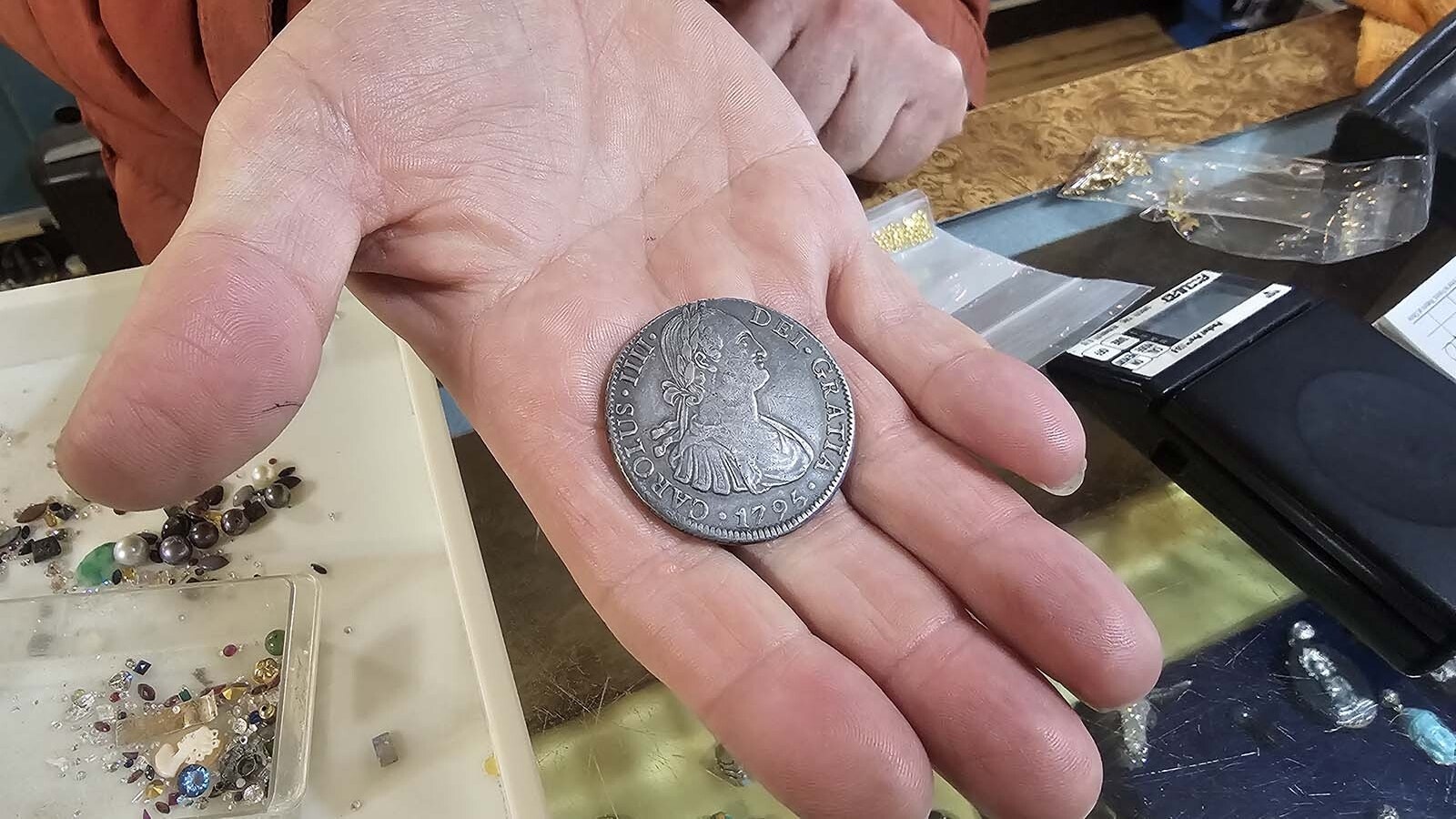By Renée Jean, Business and Tourism Reporter
renee@cowboystatedaily.com
Well before the dramatic fall of FTX, a Wyoming digital asset expert had already seen the electronic handwriting on the wall.
Laramie native Caitlin Long was on a panel with disgraced FTX CEO Sam Bankman-Fried last year at a Bitcoin conference in Miami sponsored by Stanford University. On a stage in front of thousands of people, Long talked about why leveraging things like Bitcoin is a really bad idea.
“I basically at the time said to him, ‘Your business is going to fail,” Long recalled. “I continued that debate offstage. And he did not strike me then as someone who was unsophisticated.”
While new FTX CEO John J. Ray III has suggested Bankman-Fried was “grossly inexperienced” and “unsophisticated,” Long said she came away with a different impression.
“That is exactly what’s on trial,” she said. “Was this just simple negligence? Or was this deliberate.”
Guilty Pleas
Two former colleagues of Bankman-Fried have pleaded guilty for their roles in the fraud that led to FTX’s dramatic downfall, even as the disgraced CEO was being extradited to the United States from the Bahamas.
Bankman-Fried colleague Caroline Ellison, 28, former CEO of Alameda’s hedge fund, testified she and former colleagues knowingly stole billions from FTX, while former FTX Chief of Technology Officer Gary Wang testified that he wrote code giving Alameda special stats on the FTX platform, contrary to what investors were told.
Wang and Ellison are both cooperating with federal investigators in what prosecutors have described as one of the “biggest financial frauds in American history.”
Long Wait
Long is CEO of Custodia Bank, one of four special purpose depository institutions — SPDIs for short — that have located in the Cowboy State because of its strong suite of digital asset laws.
But Custodia is still waiting, almost three years later, for the SEC to make a decision on its application for a master account. The slow-walk has been the subject of a court case that Long cannot directly discuss. But the outcome of the case has multimillion-dollar implications for Wyoming.
That’s because Wyoming laws requires SPDIs to pay two basis points on the assets they manage.
“This industry at its peak was almost worth $4 trillion in value,” Long said. “So, you start getting big, financial institutions that have billions in assets under custody, and every year they’re paying fees to the state of Wyoming equal to two basis points.”
That will start to add up quickly, Long believes.
But only if and when the roadblocks at the SEC are cleared.
“That’s what Wyoming has always played for,” Long said. “But it’s been hard to tell the story, because it’s been blocked by the Federal Reserve not recognizing the special purpose depository institutions yet.”
Size Of Wyoming Crypto Difficult To Pinpoint
Outgoing Wyoming Deputy Secretary of State Karen Wheeler confirmed for Cowboy State Daily that there are 497 DAOs, or Decentralized Autonomous Organizations, registered in Wyoming.
While an Associated Press report cited 17,000 entities with crypto in their name in Wyoming, the Secretary of State’s office found only 592 such entities when it did the search for Cowboy State Daily.
Some of those companies are not necessarily located in Wyoming, the Secretary of State’s office reports.
And since Wyoming doesn’t require companies to describe their business, the presence of the term doesn’t necessarily mean that’s what the company is all about.
But at hearings involving blockchain and other digital asset issues, a dozen or so representatives is not uncommon, indicating there is a healthy presence of crypto entities that have physical ties to the state.
Steve Lupien, an instructor with University of Wyoming, has told Cowboy State Daily he believes there are probably more than 1,000 employed by such industries.
Wyoming Laws Are Attracting Crypto Industries
Among the frequent digital asset company representatives at the state Capitol is Xiaomeng Zhou, COO of American CryptoFed DAO. He and his partner Scott Moeller have testified to lawmakers that they brought their company to Wyoming because of its robust laws governing crypto and digital asset companies.
In general, a DAO is regulated by a computer program that’s controlled by an organization’s members through a token, rather than a central corporate entity. There’s usually a blockchain, which records all the group’s decisions and ensures they are implemented.
American CryptoFed DAO also is fighting with the SEC over what Zhou says is a confusing and ill-equipped regulatory system when it comes to digital assets.
“The SEC is designed to regulate centralized entities, such as FTX, and has refused to recognize American CryptoFed DAO’s decentralized structure,” Zhou said. “Scott Moeller and I were not allowed to represent American CrytpoFed DAO if we didn’t to have centralized and hierarchical titles for American CryptoFed DAO.
“Fundamentally, the SEC regulations framework is not designed to handle (businesses) such as a DAO, which has no management, no fundraising, no revenue, no costs, no profits and no assets.”
He is among Wyoming cryptonites who would like to see Wyoming laws go national.
Wyoming prohibits making loans with customer money that’s been deposited into an SPDI.
“The Wyoming SPDI law is clearly designed to effectively prevent the FTX meltdown from happening,” Zhou said.
FTX-Favored Regulations Not Wyoming’s Favorite
Disgraced financier Sam Bankman-Fried was, at the time of the FTX meltdown, spending millions in campaign cash to buy a light hand from legislators, Long told Cowboy State Daily.
That’s not what she and other crypto advocates hope to see going forward.
“There are two camps in Washington, D.C.,” Long told Cowboy State Daily. “One that wishes crypto would just go away. And then the other is the camp that Sen. (Cynthia) Lummis is in and has been such an outspoken proponent of, which is let’s take the Wyoming regulatory approach.”
In an emailed statement, Lummis meanwhile said answers were lacking in the recent congressional hearing.
“I do not believe the FTX hearing got us the answers we need regarding this meltdown,” the statement to Cowboy State Daily read. “While some of my colleagues believe the only way to address bad actors like FTX is to ban digital assets and ignore the innovative potential of this technology, I know the only way to truly protect consumers is to install guardrails that require firms to play by the rules.
“The Lummis-Gillibrand Responsible Financial Innovation Act will protect our status as the global financial leader while preventing old-fashioned fraud like the events at FTX.”
Ban Will Backfire
Some in Congress, such as Ohio Democrat Sherrod Brown, have called for an outright ban of crypto.
Not only is that an over-reaction, Long said it simply won’t work.
“It would be essentially the same thing as trying to ban the internet,” she said. “Crypto assets are just code, coded speech. It’s impossible to ban.
“And so, the right thing to do is take the Wyoming approach, which is very simple and very consistent with first principles, which says if you’re going to provide financial services around digital assets as an intermediary, you have to be solvent.”
A ban, meanwhile, would push more digital asset companies offshore, where laws are often lax.
Throw Out The Bathwater, But Keep The Baby
Former FTX executives have recently pleaded guilty to charges of fraud in the FTX meltdown and are cooperating with investigators.
In testimony, they have admitted that money deposited with FTX was loaned to executives through Alameda Research and used to fund lavish lifestyles.
That has created anger around the globe, Long acknowledged, but that is exactly the sort of thing Wyoming laws were set up to prevent.
“We’re not here to serve the shady parts of the industry,” she said. “We’re trying to create a regulated pathway for this industry. It’s very similar to the Internet in the early 1990s.”
At that time, a Republican-controlled Congress reached an agreement with the Bill Clinton administration to treat the internet as powerful technology that should be allowed to flourish within guardrails.
“This is just another iteration of the internet,” Long said. “You have this very powerful technology, which allows people to move money peer to peer, without central banks, without government permission and without intermediaries, for the first time.”
Gold also allows people to move money around, Long acknowledged, but unlike gold, digital transfers are quick. They move at the speed of light.
“We see a lot of experimentation and some very, real, very utility, real-world-use cases coming out of it,” Long said. “The fear is that the baby is thrown out with the bathwater. But I hope, again, that Sen. Lummis is able to take the Wyoming approach nationwide, because it sure would solve a lot of problems.”





